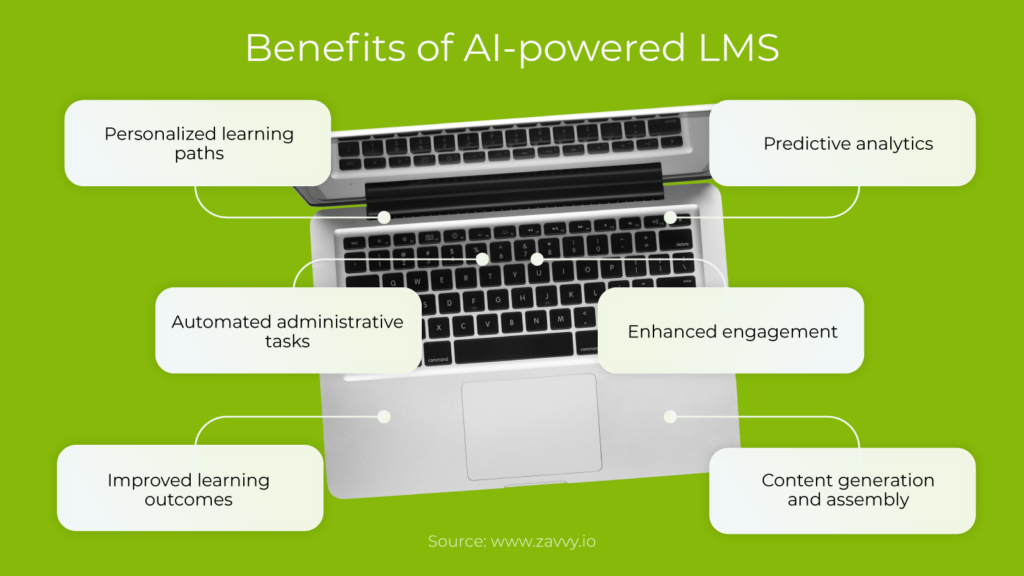
スキル・マネジメントで成功するための必須戦略

At its core, スキルマネージメント is the strategic approach organizations take to identify, analyze, develop, and deploy the skills their workforce possesses. It’s about understanding the capabilities within your team and aligning them with the organization’s goals. This process ensures that you have the right people with the right skills in the right roles at the right time.
Definition and understanding of skills management
To delve deeper, スキルマネージメント can be defined as a comprehensive system that encompasses various aspects of the employee lifecycle, including:
- Skills inventory: This involves creating a detailed inventory of the skills and competencies present within the organization.
- Skills gap analysis: Identifying the discrepancy between the existing skills and the skills required to meet current and future business objectives.
- Skills development: Implementing targeted training and development programs to bridge the identified skills gaps.
- Skills deployment: Strategically allocating employees to roles and projects that best utilize their skills and expertise.
- Performance management: Aligning individual performance goals with organizational objectives and providing feedback to foster continuous improvement.
スキル・マネジメントの進化
伝統的な手法からダイナミックなアプローチへ
1つのスキルを身につければ、キャリアを全うできた時代は終わった。私たちの祖父母の話を思い出してほしい。彼らはしばしば、ひとつの職業や会社に40年間を捧げたと話していた。
しかし、他に類を見ないほどの情報の急増と急速な技術進化を特徴とする現代において、昔ながらの方法だけに頼るのは、デジタル機器が支配する世界でタイプライターを選ぶようなものだ。
プロのプレーブックのルールは書き換えられ、新鮮で適応力のあるアプローチが必要になっている。
テクノロジーの影響
テクノロジーの足跡は、事実上、私たちの生活のあらゆる場面で見受けられる。その複雑なパターンは、私たちの日常生活や仕事の方法論、さらには余暇活動にまで入り込んでいる。この浸透した統合は、特に以下の領域を変容させた。 スキルマネージメント.
このデジタル時代を乗り切る中で、私たちは次のような画期的な革新を目の当たりにしている。 AI主導の教育プラットフォーム 個人のニーズに合わせた学習体験を提供する。
さらに、没入型バーチャルリアリティ・トレーニング・モジュールは、学習者を現実的なシミュレートされた環境に運び、実世界に影響を及ぼすことなく実地体験を可能にする。

こうした技術の進歩は単なる補助的なものではなく、急速にプロフェッショナルとしての成長の柱になりつつある。
従来の教室環境と伝統的な指導法は、依然として貴重なものではあるが、ますます強化され、場合によってはこうした前衛的なツールに取って代わられることもある。
プロフェッショナルの育成とスキルアップのハードルは上がり、個人も組織も、常に進化し続ける状況の中で競争力を維持し、適切であり続けるために、こうした最先端のリソースを取り入れるよう求められている。
The importance of skills management
Addressing the rapidly changing work environment
The business landscape is transforming at an unprecedented pace, driven by technological advancements, globalization, and evolving economic landscapes. This constant state of flux necessitates a proactive approach to スキルマネージメント. Organizations and individuals alike must prioritize identifying, developing, and leveraging skills to thrive in this dynamic environment.
Failing to adapt to these shifts can lead to skills gaps, which occur when the skills present within a workforce don’t align with the skills required to perform effectively. These gaps can hinder productivity, stifle innovation, and impact overall organizational success.
Bridging the skills gap in various industries
The skills gap is a pervasive issue that affects a wide range of industries. For example, the rapid rise of automation and artificial intelligence has created a surge in demand for professionals skilled in data science, software development, and cybersecurity. Similarly, the healthcare sector faces a growing need for skilled nurses, physicians, and other healthcare professionals to meet the demands of an aging population.
Effectively bridging the skills gap requires a multi-faceted approach. Businesses need to invest in training and development programs that upskill their existing workforce and equip them with the competencies needed to excel in evolving roles. Furthermore, fostering a culture of continuous learning encourages employees to stay ahead of the curve and proactively seek out opportunities to expand their skill sets.
Core elements of effective skills management
Before we delve into the intricacies of skills management, let’s take a step back and distinguish between two terms that often cause confusion: skills そして competencies. While they are interconnected, understanding the nuances of their differences is vital.
Differentiating between skills and competencies
Think of skills as the building blocks of your professional capabilities. They are specific, learnable abilities that can be developed through training, practice, and experience. For example, proficiency in a particular software program or the ability to analyze data sets are considered skills. These can often be demonstrated and measured objectively.
Competencies, on the other hand, represent a broader application of your skills and knowledge. They encompass your behaviors, attributes, and values that contribute to successful performance in a given role. They answer the question: How effectively can you use your skills? For instance, “problem-solving” is a competency that might require a combination of analytical skills, critical thinking, and decision-making abilities.
In essence, skills are the “what” you can do, while competencies reflect “how” effectively you use those skills to achieve desired outcomes.
Identifying key management skills: Technical, conceptual & human
Now, let’s shift our focus to management skills. These are a specialized set of skills essential for anyone in a leadership position. Effective management hinges on a blend of three core skill sets:
- Technical skills: These involve expertise in specific tools, techniques, or procedures related to a particular field. For a marketing manager, this could mean proficiency in digital marketing platforms, while for a software development manager, it might entail coding languages and software development methodologies.
- Conceptual skills: This set of skills enables managers to think strategically, see the bigger picture, and understand the interconnectedness of various parts of an organization. They are crucial for decision-making, problem-solving, and planning for the future.
- Human skills: Also known as interpersonal skills, these are all about effectively interacting with people. From communication and teamwork to motivation and conflict resolution, these skills are paramount for building strong relationships, fostering a positive work environment, and inspiring high performance within teams.
The ideal skill set for a manager will depend on various factors like industry, organizational size, and specific role requirements. However, a strong foundation in all three areas – technical, conceptual, and human – is essential for success.

Future-proofing: Predicting high-demand skills
The concept of “future-proofing” your skillset has become more crucial than ever before. As technology continues to advance at an unprecedented pace, many jobs are becoming automated, while new roles requiring entirely different skill sets are emerging.
Predicting high-demand skills involves staying ahead of the curve by identifying emerging trends and anticipating the skills that will be in high demand in the future. This might involve:
- Closely following industry publications and reports: Keeping an eye on labor market analyses, technology forecasts, and industry-specific research papers can provide insights into the skills gaps that are anticipated in the near future.
- Engaging in continuous learning and development: Proactively seeking out opportunities to upskill or reskill through online courses, workshops, certifications, or even pursuing advanced degrees in relevant fields can keep you competitive.
- Networking and attending industry events: Connecting with other professionals, attending conferences, and participating in industry webinars can provide valuable insights into emerging trends and skill demands.
By staying curious, adaptable, and continuously investing in their professional development, individuals can equip themselves with the skills they need to thrive in the ever-changing landscape of work.
Benefits of implementing strong skills management practices
Employing robust skills management practices is paramount to achieving success in today’s rapidly changing business landscape. Let’s explore the profound impact that effective skills management can have on both organizations and individuals alike.
For organizations: Increased productivity, efficient recruitment, and leadership development
Organizations implementing robust skills management practices frequently experience a significant boost in increased productivity. By meticulously identifying and analyzing the skills within their workforce, organizations can strategically align individuals with roles that perfectly match their expertise. This strategic alignment empowers employees to perform at their best, ultimately driving higher levels of efficiency and output.
Moreover, effective skills management plays a pivotal role in streamlining the recruitment process. By possessing a comprehensive understanding of the skills required for specific roles, organizations can significantly reduce time-to-hire by efficiently identifying and evaluating candidates who possess the necessary competencies. This streamlined approach not only saves valuable time and resources but also increases the likelihood of finding the perfect fit for the organization.
Furthermore, organizations can cultivate leadership development by fostering a culture that values continuous learning and development. By providing employees with targeted training and development opportunities, organizations can nurture future leaders equipped with the skills necessary to navigate complexities, inspire teams, and drive organizational growth.
For individuals: Enhanced motivation, clarity in career path, and opportunities for growth
From an individual perspective, effective skills management also unlocks a myriad of benefits. When employees have a clear understanding of their strengths and areas for improvement, they are better equipped to take ownership of their professional development. This newfound clarity often leads to enhanced motivation as individuals can readily identify skills gaps and proactively seek opportunities to expand their skill sets.
Furthermore, skills management provides individuals with unparalleled clarity in their career path. By understanding the skills and competencies valued within their organization or industry, individuals can make informed decisions regarding their career trajectory. Armed with this knowledge, they can confidently pursue professional development opportunities that align with their long-term aspirations. Lastly, effective skills management empowers individuals with opportunities for growth. As individuals actively develop and refine their skills, they become highly sought-after assets within the job market. This enhanced marketability opens doors to new and exciting opportunities, fostering a sense of career progression and fulfillment.

Challenges in skills management and how to overcome them
技能管理 is a crucial aspect of any successful organization. However, it also comes with its fair share of challenges. Let’s explore some of the most common obstacles and discuss effective strategies to overcome them.
Resistance to change within organizations
One of the biggest hurdles in skills management is encountering resistance to change from within the organization itself. Many employees may be hesitant to adopt new technologies or processes, especially if they’ve been with the company for a long time and are comfortable with the existing ways of doing things. Overcoming this resistance requires a multi-faceted approach:
- Communicate transparently: Start by clearly communicating the reasons behind the need for change. Explain how acquiring new skills will not only benefit the company but also enhance their career prospects and job security.
- Provide comprehensive training: Offering comprehensive training programs is essential to equip employees with the necessary skills and knowledge. This should involve a blend of online courses, workshops, and hands-on experience to cater to different learning styles.
- Encourage a culture of learning: Foster a positive learning environment where employees feel encouraged and supported to embrace new challenges. Recognize and reward those who actively participate in skills development initiatives.
Maintaining up-to-date skill sets in rapidly evolving industries
Staying ahead of the curve requires a commitment to continuous learning. However, keeping employees’ skill sets aligned with the latest advancements can be a daunting task. Here’s how to tackle this challenge:
- Conduct regular skills gap analyses: Conduct periodic skills gap analyses to identify any discrepancies between the existing skills within the workforce and those needed to meet future demands. This assessment will provide valuable insights for developing targeted training programs.
- Leverage microlearning platforms: Embrace microlearning platforms that offer bite-sized learning modules. These platforms deliver information in short bursts, making it easier for employees to acquire new knowledge and skills amidst their busy schedules.
- Partner with educational institutions: Establish partnerships with universities, colleges, and vocational schools to create a pipeline of skilled talent. This collaboration can involve offering internships, apprenticeships, or even customized training courses tailored to the company’s specific requirements.
最後の言葉
スキル・マネジメントの技術を習得することは、今日の競争の激しいプロフェッショナルの世界では重要な要素となっている。
この分野で卓越することは、単に羽振りがいいということではなく、基本的に必要なことなのだ。予測不可能なグローバル環境の中で、適応力は単に望ましい特性ではなく、持続的な成功の基盤なのだ。
そのため、戦略的なスキル・マネジメントの実践を通じてスキルを管理し、磨き、継続的に適応させる方法は、プロの世界での軌道に直接影響する。
先に強調した方法論と概念的なスキルと戦略は、スキル・マネジメントの包括的な枠組みを提示するものである。変化に対応するだけでなく、変化を予測し、リードするために必要なツールを身につけることで、その分野の第一線で活躍し続けることができるのです。
こうした知識を自由に活用し、効果的なスキル・マネジメントに明確に焦点を当てることで、現代のプロフェッショナルな世界で日々進化する地形に対応し、決断力と敏捷性をもって各課題に立ち向かう準備が整います。
DevSkillerがどのように御社を強化できるかをご覧ください。 スキル管理ソフトウェア のイニシアチブを取っている。
デモを予約する 製品の専門家にご相談いただくか、このクイック・ビデオをご覧ください。 5分間のデモビデオ をご覧ください。
よくあるご質問
- 技能はどのくらいの頻度で評価されるべきか?
理想的には、業種や職務に応じて、四半期に1回から年に1回程度、定期的にスキルを評価すべきである。
- オンラインコースは能力開発に有効か?
もちろんです!オンラインコースは柔軟性があり、選択肢が豊富なので、継続的な学習のための優れたリソースとなります。
- 企業はどのようにしてフィードバック文化を育てるのか?
それはトップから始まる。リーダーは率先垂範し、積極的にフィードバックを求め、オープンなコミュニケーションのための安全な環境を整えなければならない。
- なぜ変化への抵抗があるのか?
変化はしばしば不確実性をもたらす。人間は本来、快適さと予測可能性を求めるものであり、だからこそ新しい方法やアイデアにはしばしば抵抗がある。
- ソフト・スキルは教え、伸ばすことができるのか?
ソフトスキルは、トレーニングや指導、実践を通じて身につけることができる。




